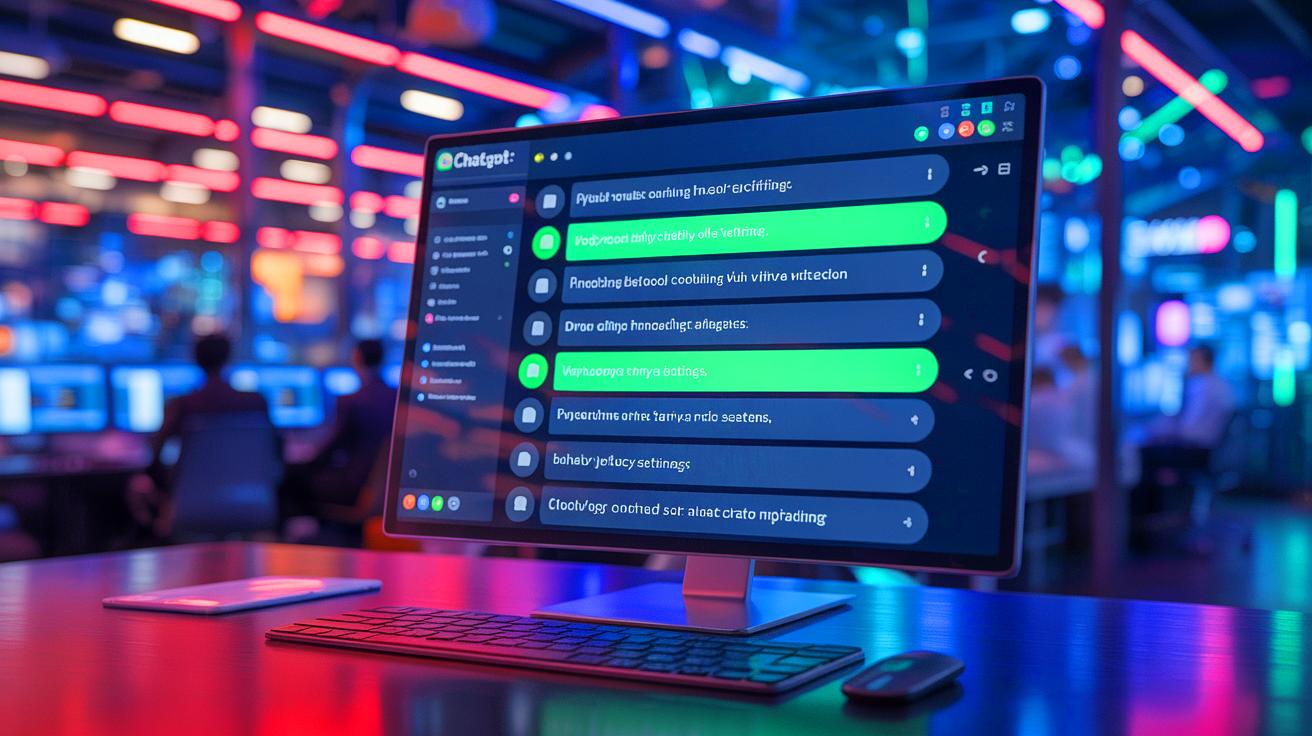| IN A NUTSHELL |
|
In a surprising turn of events, OpenAI has decided to remove a feature from its ChatGPT application that allowed users to share conversations publicly. This decision comes in response to privacy concerns that surfaced after an investigation highlighted how shared chats could be easily accessed through search engines like Google. The feature, initially introduced as a way to promote useful conversations, revealed significant risks to user privacy, prompting OpenAI to take decisive action. In this article, we explore the implications of this move and its impact on both users and the broader tech landscape.
Privacy Risks of Chat Sharing
OpenAI’s decision to withdraw the chat-sharing feature was largely driven by privacy concerns. Initially, users could make their conversations public by opting into a feature that allowed these chats to be indexed by search engines. However, this seemingly harmless feature turned out to be a privacy minefield. Many users unknowingly shared sensitive information, such as personal details, professional secrets, and even mental health discussions.
The potential for accidental exposure was significant, as users often did not realize that making a chat discoverable meant it could be found via a simple Google search. This oversight exposed users to the risk of having their private conversations accessed by anyone on the internet. The realization that confidential information could be laid bare prompted OpenAI to act swiftly and remove the feature altogether.
Say This Exact Phrase to ChatGPT and It Will Remember You Forever—Even When You Start a New Chat
Confusing User Interface Led to Accidental Exposure
Part of the problem lay in the design of the user interface, which did not adequately inform users of the implications of sharing conversations. An investigation by online research expert Henk van Ess uncovered over 500 shared chats containing sensitive information. Some of these included admissions of corporate misconduct, illegal activities, and other disturbing content.
The interface’s lack of clarity led many users to unknowingly make their conversations public. The checkbox that enabled discoverability was often checked by mistake, as users thought it was necessary for creating a shareable link. This issue highlighted the importance of clear communication and user-friendly design in preventing unintended privacy breaches.
OpenAI Collaborates with Search Engines
In response to these issues, OpenAI has taken proactive steps to safeguard user privacy. The company has not only removed the ‘Make Discoverable’ checkbox but has also disabled the indexing feature entirely. OpenAI is working closely with search engines to de-index previously shared links, although some may still be accessible on platforms like Bing and DuckDuckGo.
We just removed a feature from @ChatGPTapp that allowed users to make their conversations discoverable by search engines, such as Google. This was a short-lived experiment to help people discover useful conversations.
“He Doesn’t Even Use a Computer”: Elon Musk’s Lawyers Drop Shocking Claim in Stunning Legal Twist
OpenAI’s Chief Information Security Officer, Dane Stuckey, emphasized that the feature was a “short-lived experiment” that ultimately posed too many risks. Stuckey reiterated the company’s commitment to prioritizing user security and privacy, acknowledging that the feature’s removal was necessary to prevent accidental exposure of sensitive information.
The Future of Privacy in AI Applications
The removal of the chat-sharing feature raises important questions about the future of privacy in AI applications. As technology continues to evolve, companies must navigate the delicate balance between innovation and user protection. OpenAI’s experience serves as a cautionary tale for other tech firms, highlighting the need for rigorous privacy measures and transparent communication with users.
As AI becomes increasingly integrated into our daily lives, the stakes for privacy and security are higher than ever. OpenAI’s decision underscores the importance of proactive measures to safeguard user data and maintain trust. Moving forward, it will be crucial for companies to prioritize privacy as they develop new features and technologies.
OpenAI’s swift action to remove the chat-sharing feature demonstrates a commitment to user privacy and security. While the decision addresses immediate concerns, it also prompts broader discussions about the responsibilities of tech companies in protecting user data. As the tech landscape continues to evolve, how can companies ensure that innovation does not come at the expense of privacy?
This article is based on verified sources and supported by editorial technologies.
Did you like it? 4.6/5 (27)





